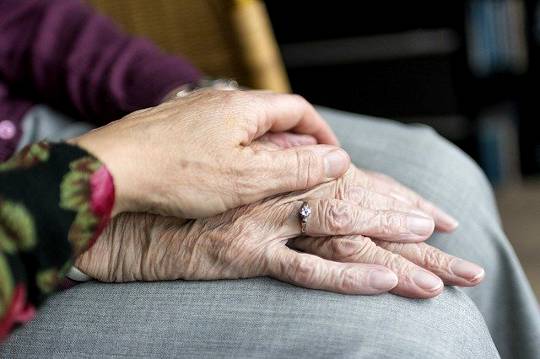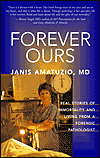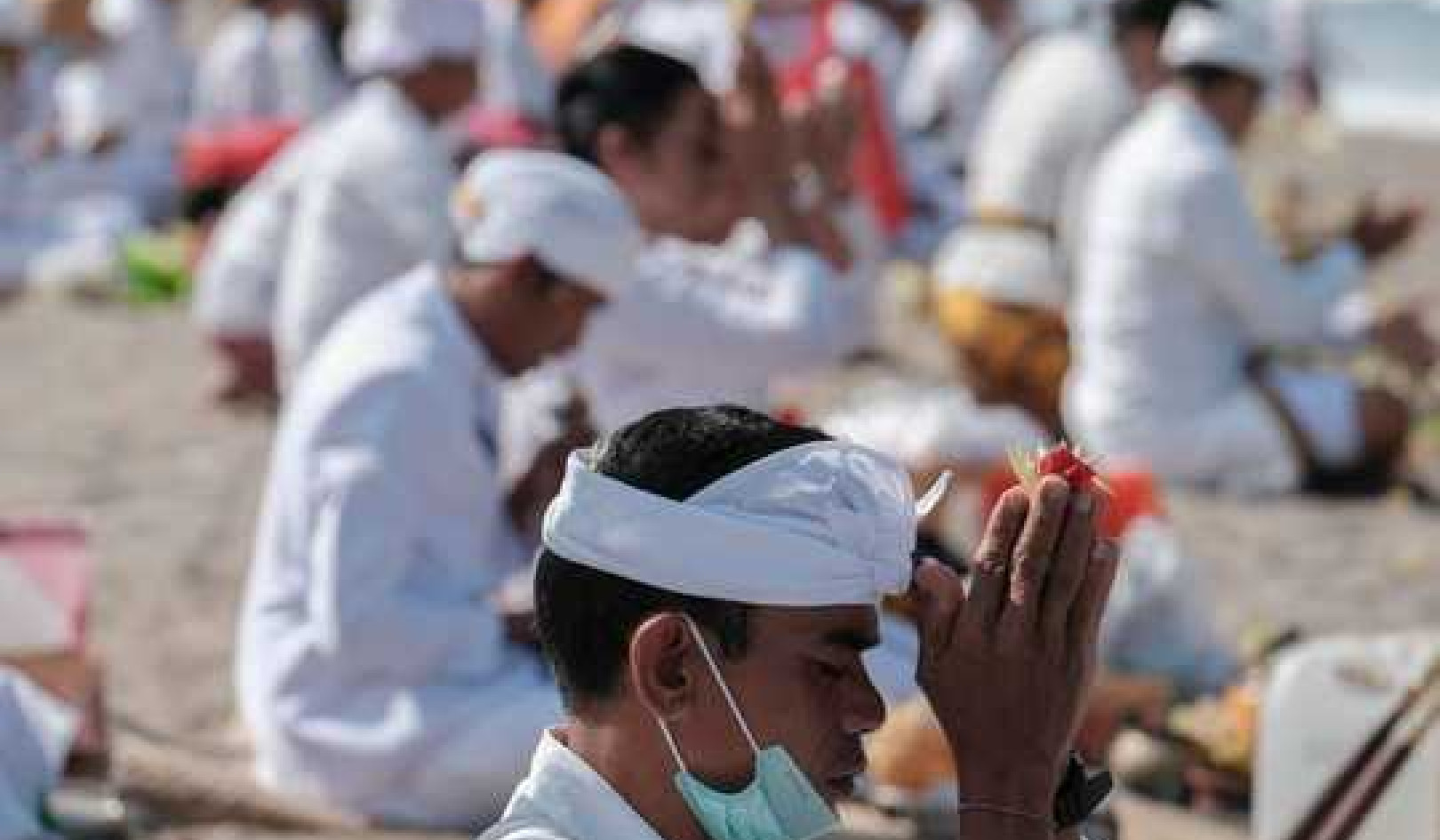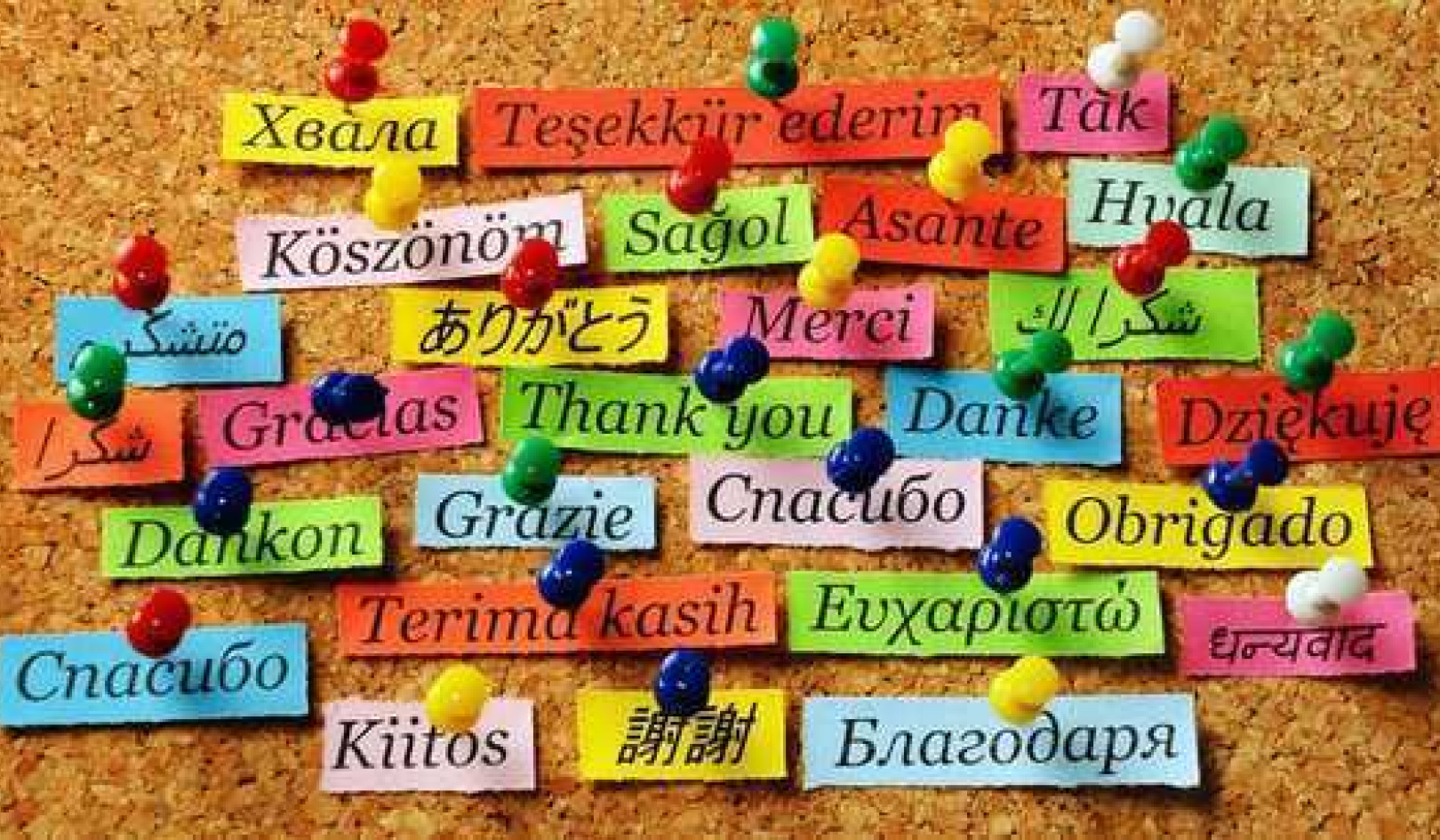
Image by Sabine van Erp
My mother, my great encourager and supporter, listened patiently as I read her the last chapter of this book, and she did what every daughter prays for at such a moment. She cried and then looked at me with an expression of such admiration and pride. As my mother gave me this gift, she asked a question that would give me one more. She said, "Janis, it's just beautiful, but tell me something -- for whom did you write this book and, more importantly, why?"
I felt a familiar tug in my heart, the one that lets me know there is more to learn and more to understand. I had to dig deeply for the answers, some of which surprised me. Let me explain.
Simply put, I am a physician. Specifically, a forensic pathologist: one who speaks for the dead. As a county coroner and medical examiner, I have spent years documenting and describing death scenes, examining bodies, and performing autopsies. I have carefully counted stab wounds, photographed gunshot wounds, and traced the pathways of injuries through the body.
The forensic pathologist must ask the question "What happened?" and clearly and scientifically explain the answer to the courts, to law enforcement, to physicians, and, most of all, to the family of the deceased person.
Taking The Time to Talk and Listen
I grew up watching my physician father, an internist, take time to talk with and kindly listen to his patients. Perhaps that's why I began talking with and listening to the families of deceased persons who received my care. I made it a practice to call family members and explain the autopsy results on non-criminal cases, to send a letter, and, when needed, to meet in person.
These talks have not always been easy for me. After explaining the autopsy results, toxicology results, and conclusions that forensic pathology can provide, I inevitably come face to face with the family's raw grief, their tears and torn hearts, and the question that I can never answer -- "Why?"
But the same thing that brought me the greatest unease also brought me the greatest gift. These families, the loved ones left behind, occasionally have shared their perspectives and thoughts and, sometimes, dreams, visions, and synchronicities that they experienced in and around the death of their loved ones. These reflections have made me wonder.
Looking Closely Enough and Shifting Perspective
When I was growing up and didn't understand a problem or an issue, I would often talk with my father and be told to study harder. Applying this wisdom, I began to study the issues of death, loss, and mortality from every angle I could imagine.
It's been written that if you look at something closely enough, you begin to see right through it. I have come to believe that the answers to life's most difficult questions are woven into its design, much as in an optical illusion.
First, you have to look, and when you look closely enough, something happens -- a tiny shift in perspective occurs. Images once hidden become apparent, and you can't help but wonder what changed and why you didn't recognize them before.
I've come to realize that there is a mysterious dimension of forensic pathology that I almost missed entirely, and yet it also feels strangely familiar. Although I still document the "body of evidence," I have become fascinated with the essence of what has left.
For a scientist and physician, however, the problem is that this area of study isn't precise. It can't be measured or photographed, and people's experiences around death can't be proven beyond a reasonable degree of medical certainty.
Studying death has required me to take a leap -- a huge leap professionally -- from my mind to my heart. And in doing so, I've remembered that what is most meaningful often cannot be measured, and that everything that counts cannot be counted.
Teaching What We Need to Remember
Individually, these experiences and shared stories were interesting, but collectively they had the ring of a larger truth. Almost unexpectedly, as I gathered and wrote down these stories, I realized that the answers I had been searching for had been there all along. They were woven into the fabric of my patients' lives and deaths and woven into my own. I just hadn't recognized it.
So, to answer my mother's first question, I realize now that I wrote this book for myself. You see, I believe that we teach that which we most need to learn. And I now know that we teach that which we most need to remember. That, perhaps, is the greatest revelation for me. The answers were there all along. I just had to remember them.
The answer to the second question -- "Why?" -- is still unfolding, but it is beginning to be replaced with wonder and inklings of greater things to come. The search has led me on an unexpected journey, and I have encountered some treasures along the way. I have grown much more aware of the Divine Presence in the universe than I ever imagined I would be. I remember more often to see magic unfolding in my life. I have begun to trust that I am never alone. I have come to believe that our loved ones are truly forever ours.
It has been said that what you do for another you ultimately do for yourself. These gathered experiences and recounted stories have been a blessing in my life. It is my fondest hope that their telling will be a blessing in yours.
The First House Call
I grew up watching my father care for people, attempt to heal them, and comfort them. I grew up watching my mother lovingly care for Dad and for us.
My father is a doctor and my mother was a nurse. They met for the first time over the bed of a sick child on station 42, the pediatrics ward, at the University of Minnesota Hospitals in Minneapolis. Dad tells me that he knew in an instant that this pretty little Irishwoman would one day be his wife. Three years later, in the midst of his internal medicine internship and World War II, they married and he went off to war. They wrote to each other every day. My mother has kept those love letters close to her heart all these years, carefully wrapped and stored with other treasures in her cedar chest.
When my father returned from his tour of duty at a navy hospital in the Pacific, my mother stopped working as a private-duty nurse, and they began raising their family. I am the oldest of three children. I knew very early in my life that I would be a doctor (or a cowboy -- my mother first convinced me that I was a girl and then that, if I became a doctor, I might be able to afford being a cowgirl!).
Dad practiced medicine in the days before managed health care, when house calls were not uncommon. He never seemed to mind them.
When I was a little girl, my father would take me and my siblings along on house calls. I loved to go, but Dad would have my brother and me wait in the car while he went in to care for the sick. I often wondered just exactly what Dad did when he visited his patients, many of whom were our neighbors.
Mother tells me that while we were waiting in the car one windy day, Dad came out of a house to find that I had taken a whole box of tissues and let them go, one by one, out the car window. All the lawns down the block were strewn with flowered white tissues. Dad spent the next half hour picking them up. After that, I never played with the tissues again, and I began to make house calls, too.
These visits fascinated me; even then I was aware that Dad seemed to be able to fix things. I would see looks of concern and worry melt into smiles and thank-yous. These people seemed to just love my dad.
It was amazing. I knew even then that part of the magic that surrounded my father was his great compassion and his ability to gently reassure his patients. And I know now that Dad reassured us all.
My father's doctor bag was made of smooth tan-brown leather. It had many compartments and smelled of antiseptics and leather polish. His stethoscope and blood pressure cuff were nestled among papers and syringes and vials. I would often carry his bag as far as the patient's front door.
One day, I went with my father to visit Mr. Phillips, an elderly neighbor who lived with his wife across the street from us. Their white house was filled with dark furniture, embroidered chairs, and heavy drapery. The house smelled of old things and perfume. Mrs. Phillips must have been watching for us because the front door opened before we had climbed to the top step. She thanked Dad for coming to their home and held on to his hand as she told him about her husband, who had been sick for a long time. Dad put down his doctor's bag, took off his coat, and placed it on a hallway chair. "Don't worry now, Irene. Let me go and see him. Janis, you wait here for me," he said as he gestured to one of the living room chairs.
Mrs. Phillips took Dad and his bag down the short, dark hallway just off the living room and opened a partly closed bedroom door. She came out a few minutes later. She looked calmer now. "Would you like some milk or lemonade?" she asked me. "Yes," I nodded as we walked into the kitchen and I sat down at the table. How different their kitchen looked from my mother's. There was so much stuff on the counters -- little bags of this and that, cookies and crackers, jams and nuts, and books everywhere. Mr. Phillips was a teacher. She placed a glass of cold milk and a plate of cookies in front of me. "How is Mr. Phillips?" I asked.
"He is very sick," she answered. "I'm so glad that your father is here to help him." She picked up an armload of towels from the floor. "Will you be all right here for a few minutes? I have to run downstairs for a moment to change a load of wash." I nodded, and Mrs. Phillips disappeared down a narrow set of stairs to the basement.
I looked around, then quietly got off the chair and stole through the living room and down the hall to Mr. Phillips's bedroom. I peeked through a crack in the door. Mr. Phillips was sitting up in bed, his shirt was off, and Dad was thoughtfully listening to his chest, telling him to take a deep breath. Then Dad sat down beside the bed as Mr. Phillips put his shirt back on. I saw Dad nod his head as Mr. Phillips began to speak.
Then, to my surprise, I saw Mr. Phillips put his big, gnarled hand up to his eyes and begin to cry. They were great big sobs -- his shoulders shook and his head was bowed. Dad gently reached over and put his hand on Mr. Phillips's arm, then took his hand and held it in both of his. Neither talked for a while. Mr. Phillips looked very old and bony just then, his skin thin and wrinkled. He seemed to all but disappear beneath the bed sheets. He and Dad sat there for a long time, it seemed, and then Mr. Phillips slowly stopped crying, reached over to Dad, and hugged him. As Dad stood up, I saw that he had tears in his eyes, too!
That was the first time I saw my father cry. Then I heard a noise and quickly ran back to the kitchen, gulped down the glass of milk, and hid a cookie in my pocket -- just in time, as Mrs. Phillips was carrying a basket of clothes up from the basement.
Dad spoke to her as we put on our coats to leave. She hugged him, too. They spoke in hushed tones as she wiped her eyes with her apron.
We left, and, as we walked down the sidewalk, I took Dad's hand and asked, "What is wrong with Mr. Phillips? He seems very sick, and Mrs. Phillips is very worried about him. Will he get better?"
Dad paused. "I don't think so, Jombasba. This is a disease called Parkinson's, and he has had it for a very long time." (Jombasba was Dad's special name for me, derived from our Italian ancestry and from his imagination, I think.)
"But, Dad, will he die?"
Dad stopped right there in the middle of the sidewalk, looked a little sad, and said, "Yes, Mr. Phillips will eventually die. We all die someday, Janis."
My nine-year-old eyes filled with tears. "But, Daddy, that's not right! Mrs. Phillips loves him so! Oh, this is just terrible!" I felt overwhelmed and sat right down on the sidewalk and began to cry. My father seemed flustered by my reaction, or perhaps he was a bit worried about what my mother would say. I felt as though I had just discovered a terrible secret.
Dad put his arms around me and asked, "Janis, what do you think happens when we die?"
"I don't know," I sniveled, looking up at him, feeling miserable, and hoping once again that he could make things better.
"Jombasba, we go to heaven -- we go to be with God."
"Where is heaven, Daddy?"
My father took a deep breath, paused, and said, "Well, you have to close your eyes and imagine the happiest, grandest, best place that you can, where all the special people and animals in your life are gathered, where the sky is velvet blue, the grass glistens, the flowers smile, and you feel like you are finally home... and that, Janis, will be heaven."
"How do I get there, Daddy?"
"Don't worry, God knows the way, and so do you."
"Will Mr. Phillips get there?"
"I'm sure he'll get there too," Dad replied.
"Are you sure, Dad?"
"Yes, Janis, I'm sure."
We were almost home now. It was getting dark outside, and we could see the kitchen lights on and Mother busy fixing dinner. I ran into the house and quickly forgot about our talk and our house call and Mr. Phillips. My life was filled with all the things of childhood -- school and friends, studying, and growing up.
But as the days passed, I grew determined to study medicine and become a physician, just like my dad. I attended medical school and then did an internal medicine internship, a pathology residency, and a forensic pathology fellowship. I began to realize the profound effect my father's compassion had had on me. I too began to listen to my patients and their loved ones and to attempt to reassure them as my father had. As I listened, I learned more than I had ever imagined I could.
Reprinted with permission of the publisher,
New World Library. ©2002.
www.newworldlibrary.com
Article Source
Forever Ours: Real Stories of Immortality and Living from a Forensic Pathologist
by Janis Amatuzio, M.D.
 Forensic pathologist Janis Amatuzio first began recording the stories told to her by patients, police officers, and other doctors because she felt that no one spoke for the dead. She believed the real experience of death - namely, the spiritual and otherworldly experiences of those near death and their loved ones - was ignored by the medical professionals, who thought of death as simply the cessation of breath. She knew there was more. From the first experience of a patient in her care dying to the miraculous "appearances" of loved ones after death, she began recording these experiences, knowing that they would bring comfort to anyone who has suffered the loss of someone they love. Written by a scientist in approachable, nonjudgmental language for anyone who has lost someone they love, this book offers stories that can't be explained in purely physical terms.
Forensic pathologist Janis Amatuzio first began recording the stories told to her by patients, police officers, and other doctors because she felt that no one spoke for the dead. She believed the real experience of death - namely, the spiritual and otherworldly experiences of those near death and their loved ones - was ignored by the medical professionals, who thought of death as simply the cessation of breath. She knew there was more. From the first experience of a patient in her care dying to the miraculous "appearances" of loved ones after death, she began recording these experiences, knowing that they would bring comfort to anyone who has suffered the loss of someone they love. Written by a scientist in approachable, nonjudgmental language for anyone who has lost someone they love, this book offers stories that can't be explained in purely physical terms.
Info/Order this book. Also available as a Kindle edition, an Audiobook, and an Audio CD.
About the Author
 Janis Amatuzio, M.D., is the founder of Midwest Forensic Pathology, P.A., serving as coroner and a regional resource for counties in Minnesota and Wisconsin. Dr. Amatuzio is a dynamic speaker, a frequent guest in the media and author of numerous journal articles. She will be featured as an expert in a documentary series about women serial killers produced by the Discovery Channel in 2005. Dr. Amatuzio's website is: MidwestForensicPathology.com.
Janis Amatuzio, M.D., is the founder of Midwest Forensic Pathology, P.A., serving as coroner and a regional resource for counties in Minnesota and Wisconsin. Dr. Amatuzio is a dynamic speaker, a frequent guest in the media and author of numerous journal articles. She will be featured as an expert in a documentary series about women serial killers produced by the Discovery Channel in 2005. Dr. Amatuzio's website is: MidwestForensicPathology.com.

























